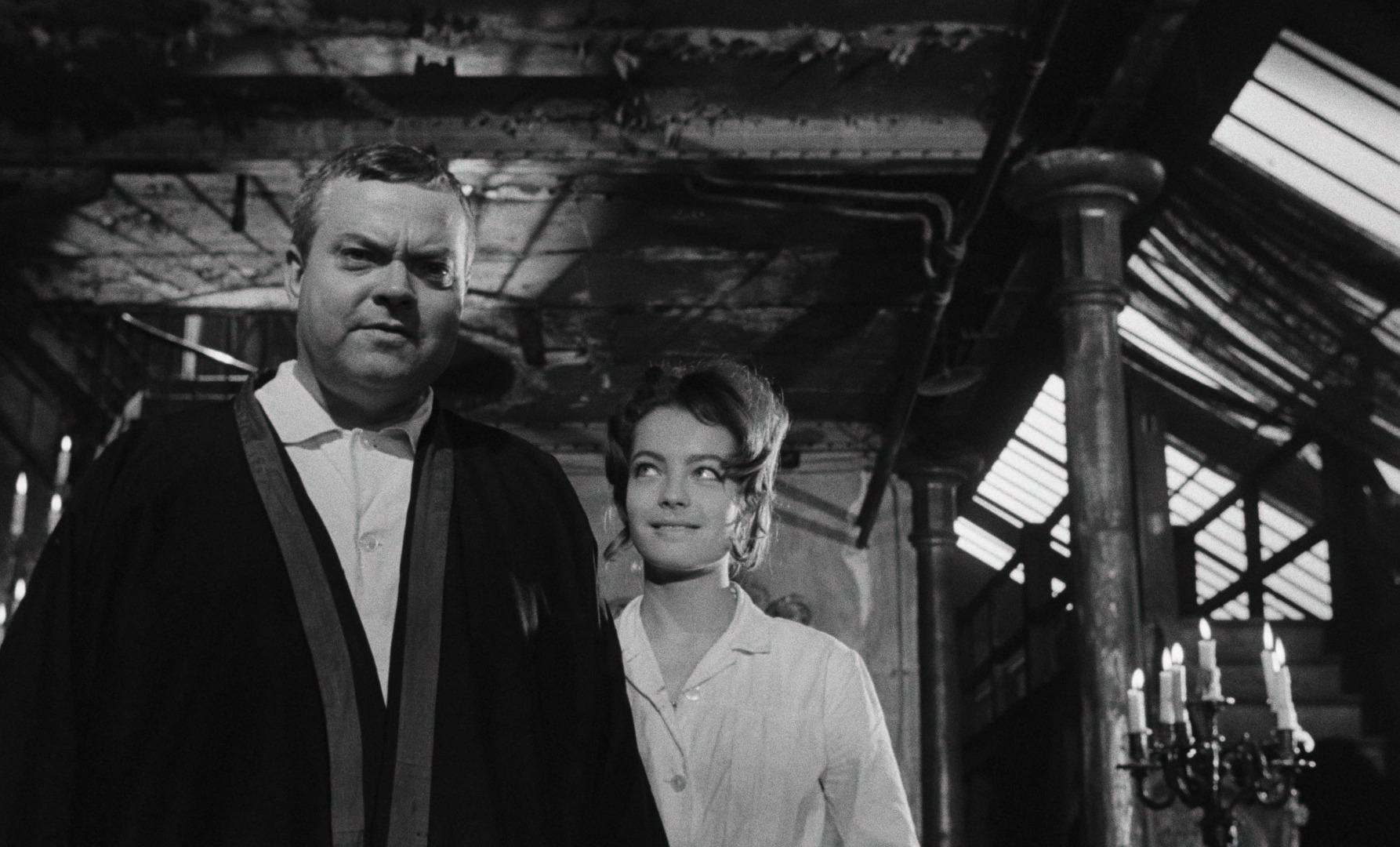The Trial: Crime of the Century

Franz Kafka’s The Trial, the unfinished tale of a man living under arrest and prosecution for an unspecified offense, is perhaps the iconic author’s most paradigmatic text. Following its posthumous publication in 1925, and its translation into English by Willa and Edwin Muir in 1937, The Trial became, in turn, one of the paradigmatic texts of the twentieth century, an emblem of the “nightmare of history” from which none of us, dreaming or awake, has ever managed to escape. That it was successfully filmed by the exiled Hollywood wunderkind Orson Welles should be legendary in its own right.
Yet, almost as if the movie itself were guilty of some indefinable crime, the reputation of Welles’s The Trial (1962) has been regularly overshadowed, in critical appraisals, by the monuments that precede and follow it. I mean, of course, Touch of Evil (1958) and Chimes at Midnight (1966), the two films that best demonstrate how Welles’s mastery had survived, even expanded, following the humbling destruction of The Magnificent Ambersons (1942) and It’s All True (partially shot in 1941 and 1942 and never finished). In the 1970s, when—hard as it is now to imagine—Welles’s later career needed rehabilitation, advocates as influential as François Truffaut and James Naremore took pains to set The Trial aside as a misstep, while biographer Charles Higham called it “an agonizing experience.” Peter Bogdanovich, wrangling with the director in one of their taped conversations, admits that it “simply isn’t a picture I really like to see . . . All the others I could see joyously over and over.” As recently as 2012, Jonathan Rosenbaum—one of the handful of critics sympathetic to the film, alongside Peter Cowie, Roger Ebert, and David Thomson—extended the view that “it has never found a very secure and comfortable place within [Welles’s] oeuvre.”
What was The Trial’s crime? Had it fallen into an abyss between Welles’s and Kafka’s divergent sensibilities? Was Anthony Perkins miscast as Kafka’s persecuted everyman? Was Welles antagonistic to the material? He didn’t do himself any favors by suggesting he’d chosen the book flippantly, from a list of literary works to adapt handed him by producer Alexander Salkind. Yet Welles also regularly called the film his happiest experience. “You know why I defend it,” he told Bogdanovich. “I suppose because it’s my own picture, unspoiled in the cutting or anything else . . . The producers were heroic and got it made, and there isn’t anything I had to compromise.” A doubter might chalk this up to petulance, yet Welles never relented on his regard for the movie. “Say what you like, but The Trial is the best film I ever made,” he told Cahiers du cinéma in 1965.







